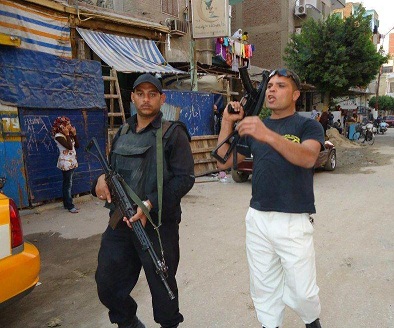After four years of genocide in Darfur, the world continues to try managing a conflict in desperate need of resolution. Today, the Arab League will issue a final statement at its summit in Riyadh, Saudi Arabia. The kingdom has recently been the primary engine of Arab diplomatic engagement on several important issues in the Middle East. Saudi Arabia helped provide a forum for averting a Palestinian civil war, continues to work to promote stability in Lebanon, and has recently had contacts with Iran to slow the region’s slide into even greater conflict. It is once again promoting the 2002 Arab peace plan, which offered Israel normal relations with the Arab states in exchange for an Israeli withdrawal from occupied Arab territories, acceptance of a Palestinian state, and a resolution of the Palestinian refugee issue. So why the diplomatic silence on Darfur? As you read this, more Darfurians continue to be displaced from their homes. Attempts to reunify the largest rebel movement in Darfur, which has splintered into almost a dozen factions, are only just beginning. Rwanda is considering removing its military forces – among the best in Africa – from Darfur, because the African Union (AU) has not paid it for its contribution – pushing Rwanda’s military expenditures to exceed its International Monetary Fund obligations. The Sudanese government continues to reject the participation of meaningful contributions of peacekeepers from outside of Africa, knowing that there are none to be found inside the continent. Rape and other forms of gender-based violence continue to be used as a weapon of war by paramilitary groups associated with the government (Khartoum now refers to them as “outlaws but has refused to fight them or protect Sudanese civilians), as well as by some rebel groups as part of their descent into chaos. These are all matters that could be addressed by the Arab League in its final statement, and in the future. The League is trusted by Sudan’s government. In a positive and constructive way, it could offer Khartoum a way out of the corner it has painted itself into, by reaffirming its support for Sudan’s territorial integrity and sovereignty while suggesting ways to end the impasse. This could involve several steps: First, an invitation to all warring parties to Saudi Arabia for peace talks under AU and United Nations auspices with the goal of concluding a comprehensive peace agreement by next Ramadan; second, a public commitment of $50 million to be made immediately available to the AU for its peacekeeping forces, with a pledge to raise more; third, the scheduling of a donor conference of Arab, Muslim, and Western states to pledge funds for the rebuilding of Darfur – long a seat of Muslim learning and Arab and African anti-colonial efforts; and fourth, a pledge of peacekeepers from Arab states under the AU and UN rubric to protect the civilian population. The argument against any diplomacy is that the “sides in any conflict are too far apart and that the situation has to get worse for one party or the other before meaningful compromise can be reached. Yet, in our meetings with rebel leaders in January, as part of New Mexico Governor Bill Richardson’s delegation, the sides did not seem too far apart. We heard demands for the amendment of the non-effectual Darfur Peace Agreement (DPA) signed last May by one of the rebel movements, but rejected by two others. The rebels viewed the DPA as a starting point to secure guarantees on provisions already included in the agreement: internationally supervised disarmament of the government-supported militias, the Janjaweed, guilty of the lion’s share of atrocities; considerably greater compensation for the rebel groups and Darfurian non-combatants; more significant powers for rebel commanders and future representation in the Khartoum government; and consolidation of Darfur from three states into one state within Sudan. For its part, the Sudanese government seeks to preserve as much power as it can while engaging on each of these issues. The bottom line for the government is its ability to maintain the territorial integrity of Sudan. Even a cursory look at the above sets of demands shows there are no clear contradictions between the needs of the government and those of the rebels. Compromises are needed on both ends; but this is not a zero-sum game. A settlement can and should be reached. The Arab summit can serve as a useful milestone in accomplishing the same goal as that of Governor Bill Richardson and other diplomats working tirelessly on this issue – to redirect international diplomacy to an immediate end to the killing and the conclusion of a peace agreement.
Amjad Atallah is president of Strategic Assessments and a consultant to the Save Darfur Coalition. Michael Bergman is the director of congressional relations and a senior policy analyst at the S. Daniel Abraham Center for Middle East Peace. Both were members of Governor Bill Richardson’s delegation to Sudan last January. They wrote this commentary for THE DAILY STAR.


